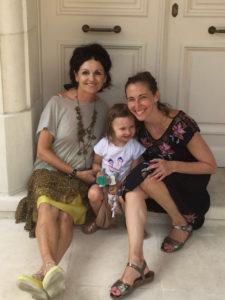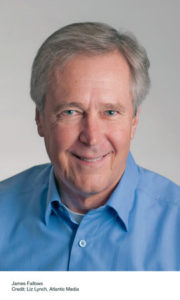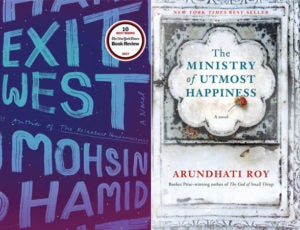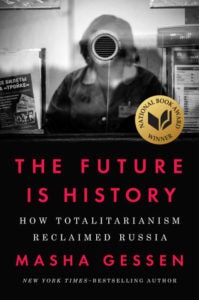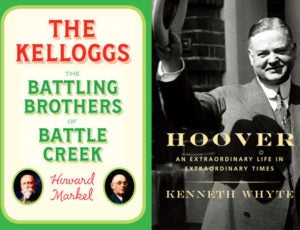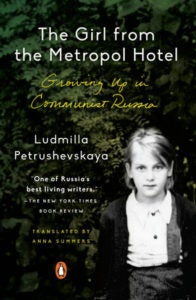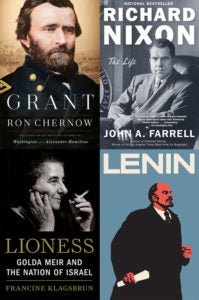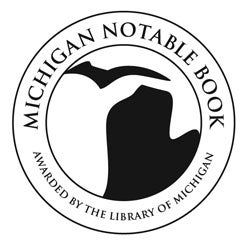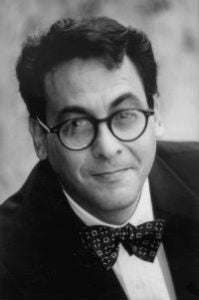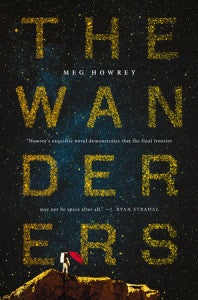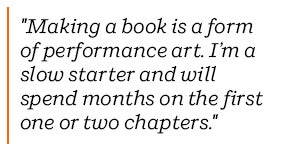How Pantheon’s Lexy Bloom Brought Hanan al-Shaykh’s New Novel to American Readers
July 10, 2018
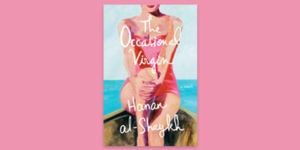 THE OCCASIONAL VIRGIN is a frank and fearless novel from acclaimed writer Hanan al-Shaykh, published today by Pantheon. The book’s storyline follows the tumultuous lives and sometimes shocking choices of two women, successful in their careers but unlucky in love.
THE OCCASIONAL VIRGIN is a frank and fearless novel from acclaimed writer Hanan al-Shaykh, published today by Pantheon. The book’s storyline follows the tumultuous lives and sometimes shocking choices of two women, successful in their careers but unlucky in love.
In this Three Questions for an Editor interview, Lexy Bloom, Senior Editor/Senior Culinary Editor, Knopf, Pantheon, Vintage, Anchor, offers insights into her editorial work with the author, the process of transforming what was originally a short story into THE OCCASIONAL VIRGIN, and the ways in which this book will resonate with American readers. Read on.
Flying 100,000 Miles in a Prop Plane to Take the Pulse of Small Town America
May 10, 2018
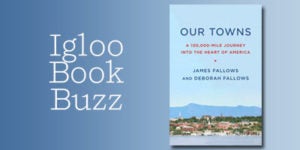 Our new Igloo Book Buzz selection is James and Deborah Fallows’ OUR TOWNS: A 100,000-Mile Journey into the Heart of America, published by Pantheon on May 8. For the last five years, the Fallowses have been traveling across America in a single-engine prop airplane. Visiting dozens of towns, they met hundreds of civic leaders, workers, immigrants, educators, environmentalists, artists, public servants, librarians, business people, city planners, students, and entrepreneurs to take the pulse and understand the prospects of places that usually draw notice only after a disaster or during a political campaign.
Our new Igloo Book Buzz selection is James and Deborah Fallows’ OUR TOWNS: A 100,000-Mile Journey into the Heart of America, published by Pantheon on May 8. For the last five years, the Fallowses have been traveling across America in a single-engine prop airplane. Visiting dozens of towns, they met hundreds of civic leaders, workers, immigrants, educators, environmentalists, artists, public servants, librarians, business people, city planners, students, and entrepreneurs to take the pulse and understand the prospects of places that usually draw notice only after a disaster or during a political campaign.
Featured Author Event: David Reich (Washington D.C.)
April 24, 2018
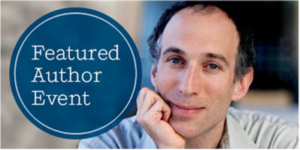 Westminster colleagues take note: Pantheon author David Reich will be discussing his groundbreaking book, WHO WE ARE AND HOW WE GOT HERE: Ancient DNA and the New Science of the Human Past, on Thursday, April 26, in Washington, D.C in the Rasmuson Theater at the National Museum of the American Indian, as part of the Smithsonian Inside Science Program. The event will begin at 6:45 p.m., with Reich’s talk followed by a book signing.
Westminster colleagues take note: Pantheon author David Reich will be discussing his groundbreaking book, WHO WE ARE AND HOW WE GOT HERE: Ancient DNA and the New Science of the Human Past, on Thursday, April 26, in Washington, D.C in the Rasmuson Theater at the National Museum of the American Indian, as part of the Smithsonian Inside Science Program. The event will begin at 6:45 p.m., with Reich’s talk followed by a book signing.
Gessen, Hamid, Markel, Petrushevskaya, Roy, and Whyte are NBCC Awards Finalists
January 23, 2018
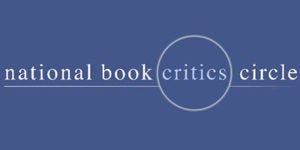 The National Book Critics Circle has announced the finalists for its 2017 awards. Penguin Random House imprints publish six finalists for NBCC Awards in the following categories:
The National Book Critics Circle has announced the finalists for its 2017 awards. Penguin Random House imprints publish six finalists for NBCC Awards in the following categories: 
Chernow, Farrell, Klagsbrun and Sebestyen Nominated for 2018 Plutarch Award
January 18, 2018
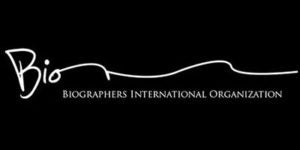 Biographers International Organization (BIO) has nominated ten books as semi-finalists for its 2018 Plutarch Award, the only international literary prize for biography that is chosen by fellow biographers. Four of the nominees are published by Penguin Random House imprints:
Biographers International Organization (BIO) has nominated ten books as semi-finalists for its 2018 Plutarch Award, the only international literary prize for biography that is chosen by fellow biographers. Four of the nominees are published by Penguin Random House imprints: 
THE MARSH KING’S DAUGHTER and THE KELLOGGS Named Michigan Notable Books
January 17, 2018
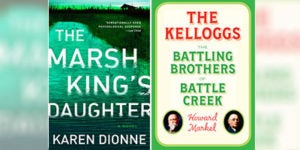 The Library of Michigan has announced its 2018 Michigan Notable Books honorees as part of its annual recognition program. This year’s 20 books were chosen by Michigan librarians from a list of nearly 300 titles published in 2017. Two of the books being honored are published by Penguin Random House imprints:
The Library of Michigan has announced its 2018 Michigan Notable Books honorees as part of its annual recognition program. This year’s 20 books were chosen by Michigan librarians from a list of nearly 300 titles published in 2017. Two of the books being honored are published by Penguin Random House imprints:
How the Kellogg Brothers Transformed Breakfast and Wellness
August 10, 2017
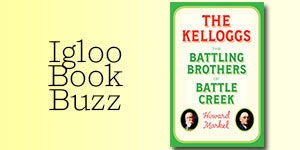 “What’s more American than Corn Flakes?” Bing Crosby once posed that rhetorical question and would probably have enjoyed reading our new Igloo Book Buzz selection, Howard Markel’s THE KELLOGGS: The Battling Brothers of Battle Creek, published by Pantheon.
“What’s more American than Corn Flakes?” Bing Crosby once posed that rhetorical question and would probably have enjoyed reading our new Igloo Book Buzz selection, Howard Markel’s THE KELLOGGS: The Battling Brothers of Battle Creek, published by Pantheon.
Meet Our Author: Meg Howrey
March 10, 2017
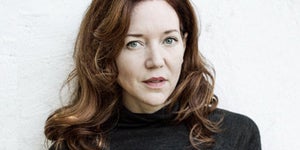 Author Meg Howrey is a former dancer who performed with the Joffrey, Eglevsky Ballet, and City Ballet of Los Angeles. She toured nationally with the Broadway production of Contact, for which she won the Ovation Award in 2001 for Best Featured Actress in a Musical. During her writing career, Meg has been the author two novels for Pantheon/Vintage, Blind
Author Meg Howrey is a former dancer who performed with the Joffrey, Eglevsky Ballet, and City Ballet of Los Angeles. She toured nationally with the Broadway production of Contact, for which she won the Ovation Award in 2001 for Best Featured Actress in a Musical. During her writing career, Meg has been the author two novels for Pantheon/Vintage, Blind

